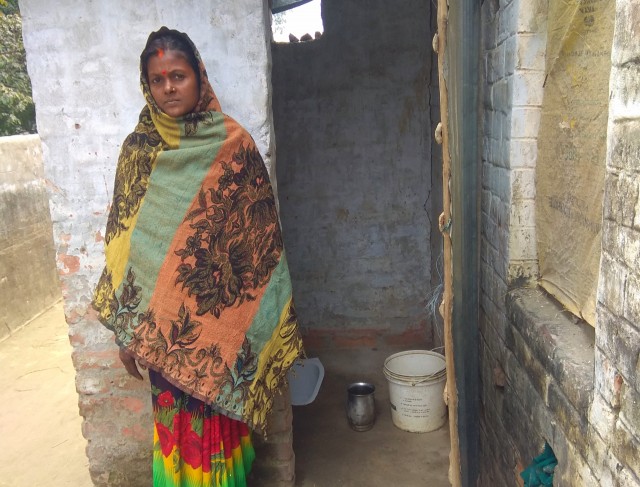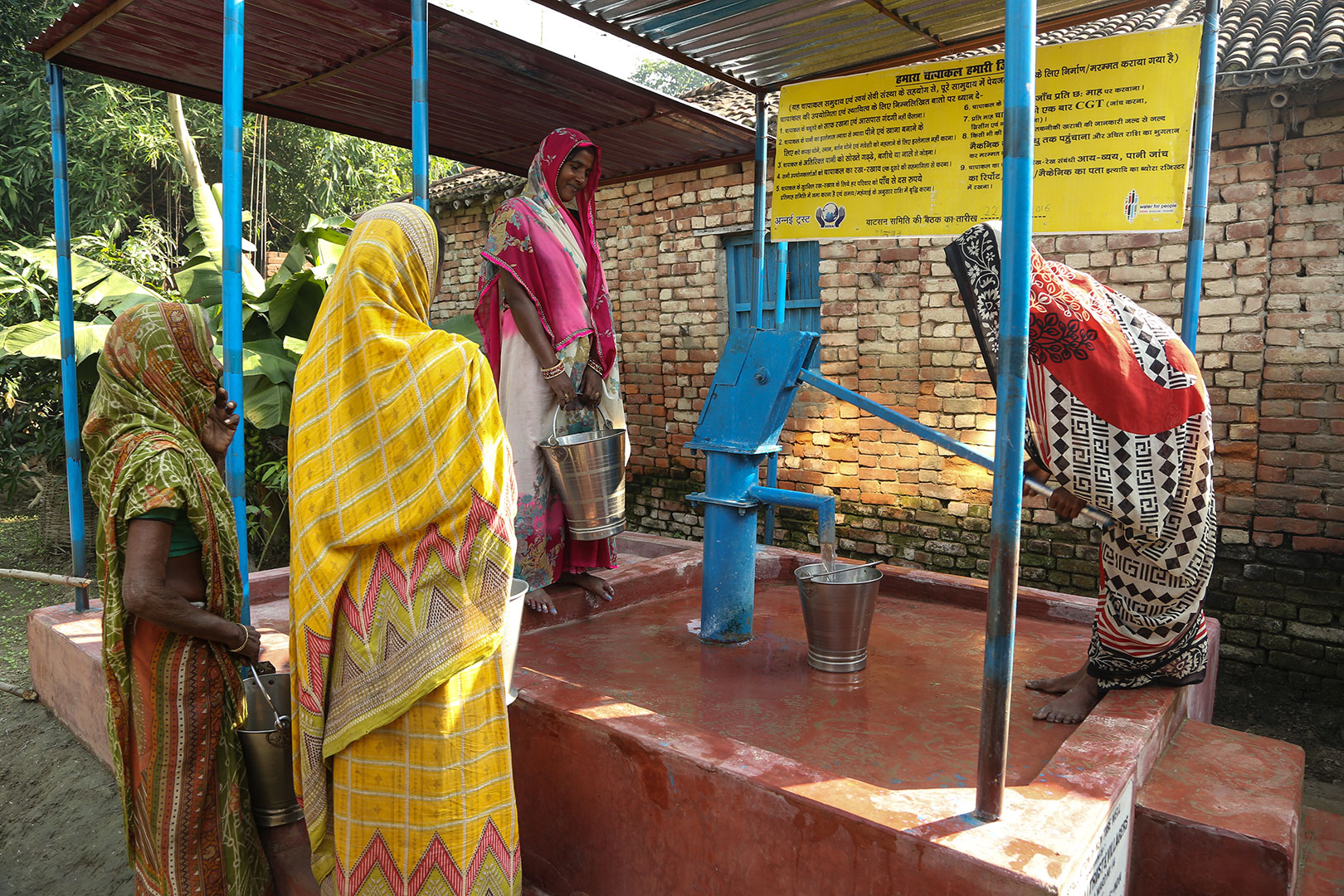The story of Geeta Devi and her new latrine

This story is about having the courage to be a LEADER OF CHANGE. It is about more than Geeta’s new latrine; it is about a woman’s determination to spark positive change in her household and in her community.
“Swachhata” (sanitation in Hindi) is not a new concept to Geeta Devi, a 35-year-old married mother of five. But it can seem like an insurmountable challenge to take on new sanitation practices in contexts of extreme poverty, like in Geeta’s village of Kamrauli in Sheohar District, State of Bihar, India.
When Project Sheohar 2 arrived in Kamrauli in September 2019 to launch a Community-Led Approach to Sanitation program, open defecation was a widespread practice in the village, as it is in much of India. A lack of access to funds is a major barrier to sanitation efforts; lack of education and knowledge on how to get started are also key factors preventing families from adopting behaviours that can tackle the spread of disease. Geeta voiced the hopelessness she felt in the face of her family’s worsening health and her community’s sanitation crisis.
And that is the day Geeta’s story changed.
With the guidance of a Field Facilitator, Geeta gained the knowledge and confidence required to purchase the material she needed to build a low-cost latrine. Moreover, she purchased the materials from a Rural Sanitary Mart, a latrine-supply shop that had been established with the help of the project to provide quality sanitation infrastructure and
installation services at an affordable price.
Thanks to some savings and the unwavering support of her husband, Bikau Kumar, Geeta finally got the latrine she needed for her household. She initially faced resistance from her community, but soon after even her critics saw the benefit of investing in improved sanitation practices.
To help communities create an enabling environment for change and reach their full potential, we need to go beyond building infrastructure. We need to provide safe and equitable access to services, activate behaviour change, and support market-based solutions. Geeta just needed some support to make a change, and that change has made her the leader she is today.
Geeta is now a powerful role model in her village, particularly for other women. The village chief appointed her a Sanitation Committee member. Her courage and sense of initiative continue to inspire other members of her community to follow her lead and build more latrines in a collective effort to make their village open defecation free.
TO DATE, ONE DROP AND ITS PARTNERS HAVE CHANGED
THE STORY OF MORE THAN 518,900 PEOPLE IN INDIA.
LET’S KEEP CHANGING THE STORY.
TOGETHER.
